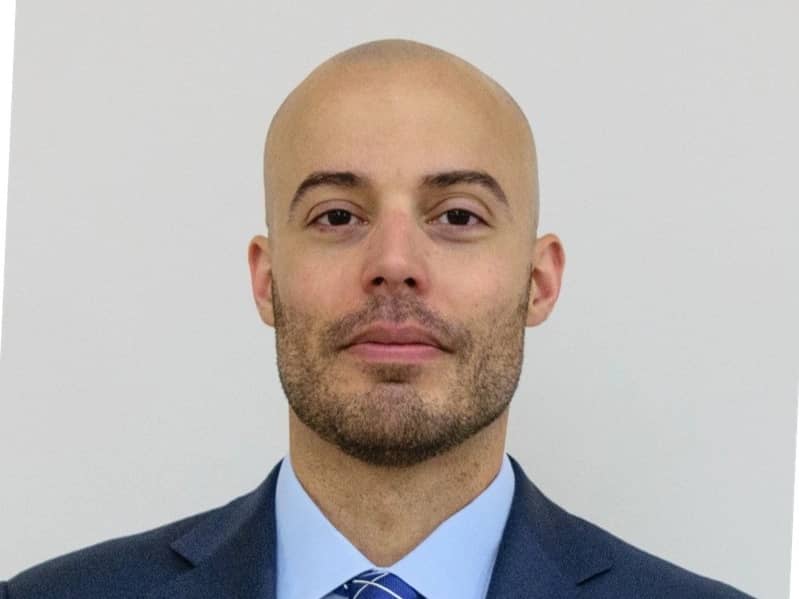위키 구독하기
Share wiki
Bookmark
Anthony Apollo
Anthony Apollo
Anthony J. Apollo는 미국 최초의 정부 지원 스테이블코인 발행을 담당하는 주 정부 기관인 와이오밍 스테이블 토큰 위원회(Wyoming Stable Token Commission)의 초대 전무이사입니다. 전통 금융과 디지털 자산 업계 모두에서 경험을 쌓은 전문가로서 KPMG, EY, ConsenSys와 같은 회사에서 역할을 수행했습니다. 현재 직책에서 Apollo는 와이오밍 프론티어 토큰(FRNT)의 개발, 출시 및 관리를 감독합니다. [1] [2]
교육
Apollo는 2006년부터 2008년까지 보스턴 대학교(Boston University)에 다녔습니다. 그는 나중에 포덤 가벨리 경영대학원(Fordham Gabelli School of Business)에 입학하여 2010년 회계학 학사 학위를 받았습니다. 그는 같은 대학원에서 2011년 금융 전공으로 경영학 석사(MBA) 학위를 받았습니다. [3] [11]
경력
Apollo는 금융 서비스 고객을 위한 감사 부서에서 일하며 전통 금융 분야에서 경력을 시작했습니다. 그는 2010년부터 2013년까지 나이지리아 KPMG에서 감사 인턴으로, 이후 감사 선임 협회원으로 근무했습니다. 이후 EY에 합류하여 2013년 11월부터 2017년 1월까지 성과 개선을 위한 자문 서비스 매니저로 근무했습니다. 그의 경력은 2017년 1월부터 9월까지 DocuSign에서 고객 성공 설계자로 일하면서 기술 부문으로 전환되었으며, 이는 이후 블록체인 기술과의 작업의 기반이 되었습니다.
그의 블록체인 업계 진출은 이더리움 소프트웨어 기술 회사인 ConsenSys에서 시작되었습니다. 그는 그곳에서 2017년 9월부터 2018년 8월까지 이더리움 기반의 트랜스미디어 사이버펑크 프랜차이즈인 Cellarius의 "Universe Architect"로 공동 설립하고 근무했습니다. 그는 또한 2018년 8월부터 12월까지 ConsenSys Sports의 운영 책임자로 공동 설립했습니다. ConsenSys에서의 임기를 마친 후 Apollo는 여러 창업 활동에 참여했습니다. 그는 2019년 1월부터 2020년 12월까지 운영 책임자로 Saffron Solutions, LLC를 공동 설립했습니다. 2021년 1월, 그는 이더리움과 폴리곤 블록체인 기반의 멀티미디어 개발 및 크라우드 펀딩 플랫폼인 Rensa를 설립하여 CEO로도 활동했습니다.
디지털 자산에 대한 와이오밍의 입법 환경에 매료된 Apollo는 2021년 와이오밍주 샤이엔으로 이주했습니다. 2023년 9월 19일, 그는 새로 설립된 와이오밍 스테이블 토큰 위원회의 초대 전무이사로 임명되었습니다. 이 직책에서 그는 주 정부의 공공 부문 스테이블코인 발행 및 관리 계획을 주도하고 있습니다. [1] [4] [3] [9] [12] [13]
와이오밍 스테이블 토큰 위원회
전무이사로서 Apollo는 위원회를 관리하고 이전에 와이오밍 스테이블 토큰(WYST)으로 불렸던 와이오밍 프론티어 토큰(FRNT) 발행을 위한 노력을 지휘할 책임이 있습니다. 그는 이 계획을 "미국 주 정부의 맥락에서의 스타트업"이라고 설명했습니다. 이 위원회는 2023년 3월 와이오밍 스테이블 토큰 법(Wyoming Stable Token Act)에 의해 설립되었으며, 주 일반 기금에서 580만 달러의 초기 예산을 받았으며, 이는 프로젝트 수익으로 상환될 예정입니다. [5] [6]
토큰 개요 및 재무 모델
와이오밍 프론티어 토큰은 미국 달러에 1:1로 고정되도록 설계된 스테이블코인입니다. Apollo의 감독하에 위원회는 토큰이 완전히 준비금으로 뒷받침되며 법에 따라 최소 102%의 자본금을 유지해야 하는 프레임워크를 구축했습니다. 준비금은 미국 재무부 증권, 현금 및 환매 계약으로 구성됩니다.
이 프로젝트의 재무 모델은 주 정부에 수익을 창출하도록 설계되었습니다. 준비금 자산에서 발생하는 이자 수익은 먼저 위원회의 운영 비용을 충당하고 초기 예산을 상환하는 데 사용됩니다. Apollo에 따르면, 그 이후의 이익은 와이오밍 학교 재단 프로그램(Wyoming School Foundation Program)이 초기 수혜자로 지정된 주 정부 프로그램으로 향합니다. 그는 "이는 주 정부에 대한 순 신규 자금입니다... 우리는 먼저 우리 자신의 예산을 조정한 다음, 자금을 주 정부로 돌려줄 수 있습니다."라고 말했습니다. 위원회는 또한 장기적으로 상당한 규정 준수 작업이 필요한 장기적인 개념이지만, 미래에 토큰 보유자에게 이자 수익의 일부를 직접 전달하는 메커니즘을 만드는 가능성을 모색했습니다. [6] [5] [7] [8]
잘못된 내용이 있나요?
